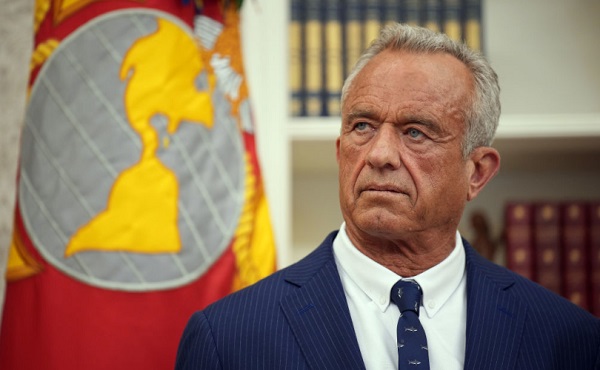Alberta
New mandatory province-wide measures to battle COVID will affect every business and family

From the Province of Alberta
New mandatory provincewide measures to protect lives
New mandatory health measures go into effect immediately to protect lives.
Expanded health measures will be in effect provincewide. All Albertans, businesses, organizations and service providers must follow all new health measures. These restrictions will be in place for a minimum of four weeks.
“Alberta has sought to protect both lives and livelihoods from the beginning of the pandemic. The recent surge in COVID-19 hospitalizations will threaten our health-care system and the lives of many vulnerable Albertans unless further action is taken now. With the promise of a vaccine early in 2021, we can see the end of this terrible time. But all Albertans must take this more seriously than ever by staying home whenever possible, and following these new measures.”
“Alberta’s case numbers and hospitalizations have reached a point where we must take stricter measures in order to protect capacity in our health system. These mandatory new health measures are some of the strictest we’ve implemented, but they are absolutely critical to the future of our province.”
“These mandatory measures will help us slow the spread of COVID-19. This will require individual sacrifices that are necessary to protect our province. It’s not just about one person, it’s about doing what we can to protect and save our loved ones, colleagues, neighbours, and even strangers. Following these public health measures is how we as Albertans care for and protect each other.”
New expanded mandatory measures come into effect Dec. 8 for social gatherings and mandatory masking. All others come into effect at 12:01 a.m., Dec. 13.
Social gatherings – immediate
- All indoor and outdoor social gatherings – public and private – are prohibited.
- Close contacts are limited to household members only.
- Individuals who live alone will be allowed up to two close contacts for in-person visiting, with those two people remaining the same for the duration of the restriction period.
- Festivals, parades, events, concerts, exhibitions, competitions, sport and performance remain prohibited.
Masking – immediate
- The mandatory indoor public masking requirement will be extended provincewide.
- Public spaces include locations where a business or entity operates and is applicable to employees, visitors and the general public.
- Applies to all indoor workplaces and facilities outside the home.
- Farm operations are excluded.
- Rental accommodations used solely for the purposes of a private residence are excluded.
Places of worship – starting at 12:01 a.m., Dec. 13
- All places of worship will be limited to 15 per cent of fire code occupancy for in-person attendance.
- Virtual or online services are strongly encouraged.
- Drive-in services where individuals do not leave their vehicles and adhere to guidance will be permissible and are not subject to capacity restrictions.
- Mandatory mask mandate, physical distancing and other guidelines remain in place.
Retail – starting at 12:01 a.m., Dec. 13
- Retail services must reduce customer capacity to 15 per cent of fire code occupancy, with a minimum of five customers permitted.
- Curbside pickup, delivery and online services are encouraged.
- Shopping malls will be limited to 15 per cent of fire code occupancy.
Closures – starting at 12:01 a.m., Dec. 13
- Restaurants, pubs, bars, lounges and cafes will be closed to in-person service.
- Only takeout, curbside pickup and delivery services are permitted.
- Casinos, bingo halls, gaming entertainment centres, racing entertainment centres, horse tracks, raceways, bowling alleys, pool halls, legions, and private clubs will be closed.
- Recreational facilities – fitness centres, recreation centres, pools, spas, gyms, studios, day and overnight camps, indoor rinks and arenas – will be closed.
- Outdoor recreation is permitted, but facilities with indoor spaces except for washrooms will be closed.
- Entertainment businesses and entities – libraries, science centres, interpretive centres, museums, galleries, amusement parks and water parks – will be closed.
- Hotels may remain open but must follow restrictions – no spas, pools or in-person dining. Room services only.
- Personal and wellness services, including hair salons, nail salons, massage, tattoos, and piercing, will be closed.
Health services, including physiotherapy or acupuncture, social or protective services, shelters for vulnerable persons, emergency services, child care, and not-for-profit community kitchens or charitable kitchens will remain open for in-person attendance.
Work from home – starting at 12:01 a.m., Dec. 13
- Mandatory work from home measures will be implemented unless the employer determines that work requires a physical presence for operational effectiveness.
Closures – ongoing from Nov. 27
- Entertainment businesses and entities – community halls and centres, indoor children’s play centres and indoor playgrounds, theatres, auditoriums, concert halls, and community theatres, nightclubs, banquet halls and conference centres, indoor and outdoor festivals, concerts with the exception of drive-in events, tradeshows, and sporting events or competitions, remain closed.
Alberta
Tell the Province what you think about 120 km/h speed limit on divided highways

Alberta’s government is engaging with Albertans on increasing speed limits on rural highways.
Starting Nov. 7, Albertans can share their views on modernizing speed limits on divided highways through an online survey running until Dec. 12. The survey will ask how Albertans view raising the speed limit by 10 km/h on various highways from 110 km/h to 120 km/h.
“Alberta’s government is investigating how to safely increase speed limits on divided highways, and if Albertans support increasing speed limits. We are investing more than $1.5 billion this year alone to improve highway safety and upgrade infrastructure across the province. We want Albertans to be able to drive the speed limit that the highways are designed for. Modern vehicles combined with public awareness mean we can explore higher speed limits.”
The survey will provide Albertans with the opportunity to provide input on which highways they would prioritize having a speed limit increase, their views on restricting commercial trucks from using the far-left lane on highways with three or more lanes and any other feedback that would improve driving experiences on provincial highways.
Following a review of the survey results, Alberta’s government plans to conduct a mini-trial of a 120 km/h speed limit to assess the impacts of higher speed limits on divided highways. The trial will include strong monitoring to assess driving behaviour.
Alberta’s government reminds motorists to slow down and drive to the conditions. Speed limits are set for ideal conditions. When roads are wet, icy or when there is reduced visibility, motorists should slow down.
Quick facts
- Alberta’s provincial highway network includes more than 64,000 lane kilometres of highways, about 11,700 lane kilometres of which are divided.
- The posted speed limits of Alberta’s divided highways range from 100 to 110 km/h, although the posted speed limits on segments passing through cities, towns and First Nation lands can be as low as 50 km/h due to factors such as signalized intersections, pedestrians and local access.
Related information
- The survey is available online.
Alberta
Alberta Announces Members of Class Size and Complexity Committee

A new Class Size and Complexity Cabinet Committee has been struck to address classroom challenges.
Taking action on class size and complexity
Classrooms in Alberta continue to grow and are becoming increasingly complex, and immediate action is needed to address these issues in the public education system. To meet these issues head on, the Class Size and Complexity Cabinet Committee has been created. The cabinet committee will help guide government policy and deploy resources to deal with class sizes and classroom complexity.
“We are committed to providing world-class education, and we’re building schools and funding education at a rate unprecedented in this province. This committee will help us address the concerns of teachers, parents and students around class sizes and complexity.”
Throughout November, Alberta’s government will continue work with school boards to collect data on class sizes and classroom composition. The cabinet committee will use this data to direct resources to the classrooms that need it the most. Starting in January, this data will be made available and released annually.
The Class Size and Complexity Cabinet Committee will be co-chaired by the Premier of Alberta and the Minister of Education and Childcare. It will also include non-voting members representing school boards, administrators and a teacher representative of the ATA. The committee will also hear from school boards, academic experts, teachers, educational assistants, complex needs specialists and parents to inform its decisions and guide this vital work.
“We heard teacher concerns, and we are providing solutions. The Class Size and Complexity Cabinet Committee will help us take immediate action and ensure teachers and students are given the support they need to succeed.”
In June 2025, Alberta’s government established the Aggression and Complexity in Schools Action Team to provide advice on addressing classroom complexity. The report has been received and will be released soon. Over the coming months, the cabinet committee will start rolling out solutions informed by the action team’s recommendations. In addition, the committee will guide the creation of a new inclusive education policy framework.
“The work of this committee will support teachers in responding to the growing complexity in our classrooms. We will ensure that the voices of the contributors to the initial work guide
solutions that truly improve the educational experience for students and the educators who serve them.”
“I appreciate the government’s recognition of the impact of classroom complexity and their commitment to working collaboratively for improvement. Supporting teachers ultimately improves classroom conditions and student outcomes.”
Using data collected, this cabinet committee will also guide Alberta’s government in executing its commitment to hire 3,000 new teachers and 1,500 new educational assistants over the next three years. They will also assist in identifying and prioritizing where new schools and modulars should be built, advancing the government’s commitment to invest $8.6 billion to build 130 new schools, and provide 109 modular classrooms in the growing communities that need them urgently.
Quick facts
- Members of the Class Size and Complexity Cabinet Committee include:
- Danielle Smith, Premier of Alberta
- Demetrios Nicolaides, Minister of Education and Childcare
- Jason Nixon, Minister of Assisted Living and Social Services
- Rick Wilson, Minister of Mental Health and Addiction
- Searle Turton, Minister of Child and Family Services
- Lynnette Anderson, chief superintendent, Edmonton Catholic Schools
- Nicole Buchanan, chair, Red Deer Public Schools
- Marilyn Dennis, former president of Alberta School Boards Association
- Mike McMann, superintendent, Fort Vermilion Schools and President, College of Alberta School Superintendents
- Joanne Pitman, chief superintendent, Calgary Board of Education
- Dr. Elissa Corsi, Alberta Teachers’ Association
- Only Cabinet members are voting members. Additional guests will be invited to attend and share their expertise at the discretion of the chairs.
- School boards will be required to submit data on Alberta classrooms by Nov. 24.
-

 Alberta2 days ago
Alberta2 days agoTell the Province what you think about 120 km/h speed limit on divided highways
-

 Energy22 hours ago
Energy22 hours agoThawing the freeze on oil and gas development in Treaty 8 territory
-

 National1 day ago
National1 day agoNew Canadian bill would punish those who deny residential indigenous schools deaths claims
-

 Alberta2 days ago
Alberta2 days agoAlberta’s number of inactive wells trending downward
-

 Business2 days ago
Business2 days agoBill Gates Gets Mugged By Reality
-

 Censorship Industrial Complex2 days ago
Censorship Industrial Complex2 days agoSchool Cannot Force Students To Use Preferred Pronouns, US Federal Court Rules
-

 Business23 hours ago
Business23 hours agoWhat Pelosi “earned” after 37 years in power will shock you
-

 Health2 days ago
Health2 days agoRFK Jr. urges global health authorities to remove mercury from all vaccines




